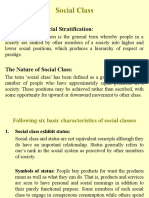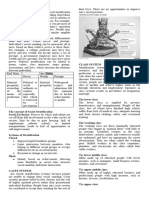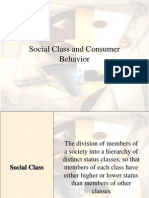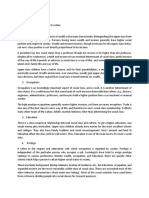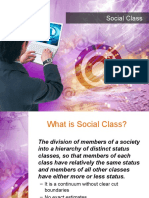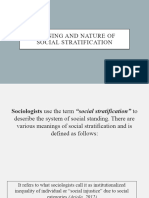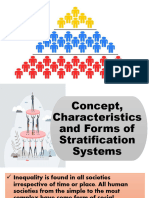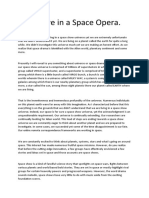0% found this document useful (0 votes)
9 views17 pagesPert 3 Perilaku Konsumen
The document discusses social factors that influence social class including economic, interaction, association, socialization, political, and class consciousness variables. It also discusses determinants of social class such as work, personal achievements, interaction, ownership, value orientation, and class consciousness.
Uploaded by
Shine Day PurbaCopyright
© © All Rights Reserved
We take content rights seriously. If you suspect this is your content, claim it here.
Available Formats
Download as PPTX, PDF, TXT or read online on Scribd
0% found this document useful (0 votes)
9 views17 pagesPert 3 Perilaku Konsumen
The document discusses social factors that influence social class including economic, interaction, association, socialization, political, and class consciousness variables. It also discusses determinants of social class such as work, personal achievements, interaction, ownership, value orientation, and class consciousness.
Uploaded by
Shine Day PurbaCopyright
© © All Rights Reserved
We take content rights seriously. If you suspect this is your content, claim it here.
Available Formats
Download as PPTX, PDF, TXT or read online on Scribd
/ 17























